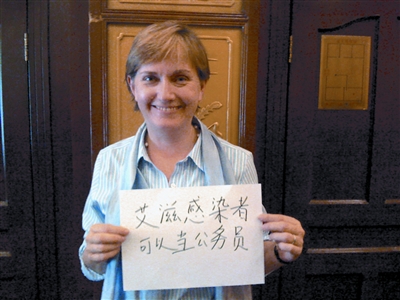In previous posts, we’ve described our approach to creating a strategic plan, writing a budget and managing volunteers – the three core skill areas covered by our nonprofit coaching programs in China. We believe that facilitating meetings is another essential skill for nonprofit groups, and that effective meeting facilitation requires solving conflicts in a fair, transparent and non-threatening manner.
[REPORT] Report on the Impact of China’s 2010 “Strike Hard Campaign”: A Crackdown on Sex Work
The 2010 “Strike Hard Campaign” put in place a zero tolerance policy on sex work, gambling and drugs all across China. While many brothels and popular clubs were closed ultimately sex workers continued work out in more remote areas. This geographic shift cut people off from essential health services, HIV/AIDS education, and even funeral services for women who die while cut off from their families.
Here in its first major report The China Sex Worker Organization Network Forum trained its members to document the effects of the crackdown. With interviews with close to 300 sex workers from around the country the report documents how “local stakeholders, including sex workers, owners of EEs and sex worker service organizations, see the impacts of these crackdowns and their effects on HIV intervention.”
The report (here in its original in Chinese and translated by volunteers in the network into English here), published in December 2011, finds that the crackdown was a disaster for them.
[COMMENTARY] Grievances Keep Coming – But Where Do They Go?
By Sara L.M. Davis
Yu Hua’s New York Times op-ed, “In China, Grievances Keep Coming“, says that China’s petitioning system works alongside the legal system as a parallel way to channel thousands of individual grievances each year. In fact, as Asia Catalyst sees in our work with Chinese AIDS NGOs, the petitioning system undermines social stability.
[COMMENTARY] Will China’s New Code of Conduct Protect Hospital Patients?

Wish tree at the International AIDS Conference in Vienna
By Mike Frick
Last week, China’s Ministry of Health released a draft “Code of Conduct for Medical Practitioners” for public review and comment. The document lays out a code of conduct for hospital administrators, doctors, nurses and other medical personnel. According to the ILO, many Chinese hospitals refuse to treat patients with HIV/AIDS – so there is definitely a need for new policies. We reviewed the draft code within Asia Catalyst and found some areas of progress, as well as some areas where the standards need a lot more work.
[NEWS] Asia Catalyst in the People’s Daily

It’s not every day that Asia Catalyst appears in the Wall Street Journal…or the People’s Daily, the official organ of the Chinese Communist Party. It was a pleasant surprise, then, when both happened in the same week.
Here’s a link to an article about Chinese civil rights group Tianxia Gong and their campaign to end employment-related discrimination against people living with HIV/AIDS (PLWHA) in China. Staff of the grassroots NGO asked friends and supporters to pose for the camera with signs reading “PLWHA can be teachers” and “End discrimination against PLWHA”. UNAIDS picked it up, and over 12,000 people around the country have had their photos taken. We are honored to be part of this important campaign.




